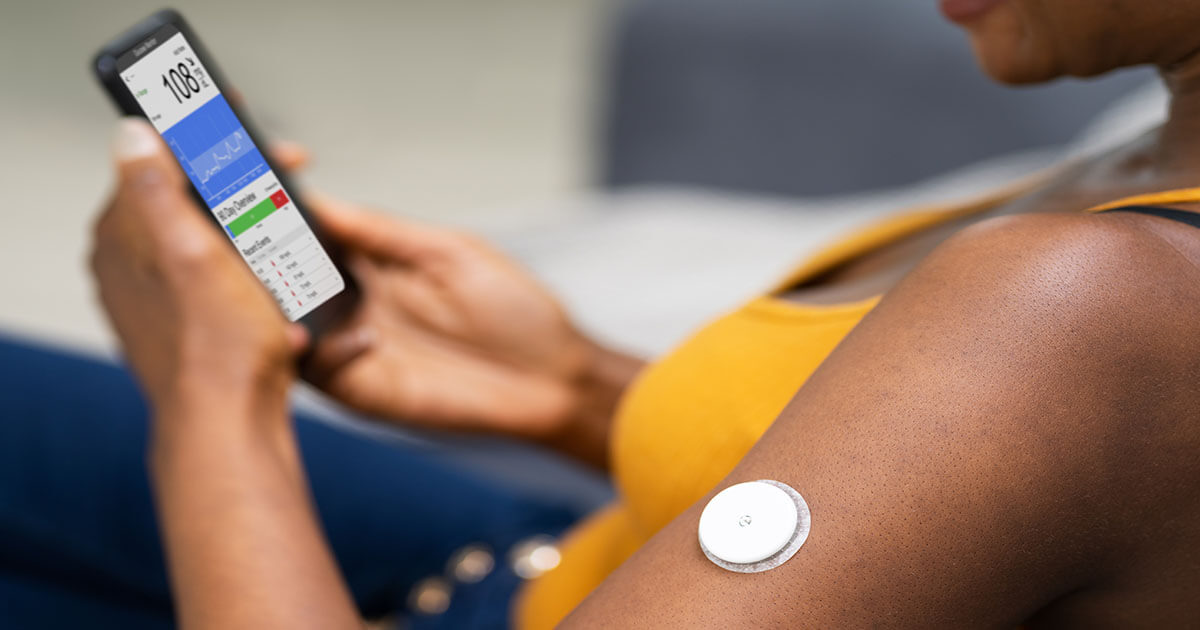The year 2015 comes to an end with resounding examples of the success of the national and regional children and young people’s diabetes networks. The launch of the National Children and Young People’s Diabetes Network’s website (www.cypdiabetesnetwork.nhs.uk), improvements in National Paediatric Diabetes Audit (NPDA) results, care in schools, the development of regional networks and maintaining a national profile through engagement with numerous stakeholders have all been major priorities. Commitment to improving care for children and young people (CYP) with diabetes and their families and collaborative projects underpins all our work.
The national network was set up in 2009 with the help of NHS Diabetes. The 11 regional networks across England and Wales are led by our colleague Fiona Campbell. Each regional network has a Clinical Lead and a CYP Network Co-ordinator/Manager, who is joined by experts working in front-line diabetes services and representative parents and young people with diabetes. Strategic partners are paramount to our success, and all relevant stakeholders, including NHS England, the Department of Health, the Quality Surveillance Team, members of the Strategic Clinical Networks, commissioners and charities, are engaged at all levels of network activity.
Engaging CYP and parents is vital if innovative and effective service redesign is to be achieved. To this end, the Families with Diabetes National Network (FWD NN; www.familieswithdiabetes.co.uk) has been set up to assist with communication with users of our diabetes provider services. The networks strive to embed best practice, work to agreed guidance and protocols, share tools and resources, and maintain a level of quality assurance that safeguards improvements in outcomes and reduces variation. Uniting in this way will ensure safe, effective, efficient and sustainable services to produce the high quality that is desired to deliver continued improvements in clinical and psychosocial outcomes for our CYP with diabetes and their families.
Successes of the networks
The many successes of the networks should be celebrated to reward the commitment and contributions made by all individuals, teams and collaborations. In this editorial, we reflect on the many examples of innovative practice, from each of the regional networks, that illustrate why the National CYP’s Diabetes Network continues to be such a success story. The needs and priorities of each regional network are very different, and the major achievements of each network in 2015 are described at the end of this editorial.
Collaborations within and between networks
Collaborations across the regional networks have inspired many fruitful projects. The North West, North East and North Cumbria, and Yorkshire and Humber networks form the North of England footprint. Together, they have developed a successful format for the delivery of patient and parent/carer support days, with two further events already planned for 2016.
Further projects to enhance diabetes care in schools continue, with three networks – East of England, North West and Thames Valley – working together to design an e-learning training module for school staff, which staff groups throughout England and Wales will be able to access. Congratulations must be extended to the e-Learning for Schools Working Group, which has recently won a grant for £10 000 from the Big Lottery Fund, along with help from the Juvenile Diabetes Research Foundation (JDRF; https://jdrf.org.uk). This e-learning module will be designed and hosted by Virtual College (www.virtual-college.co.uk). The project is building on Diabetes Guidelines for Schools, Colleges and Early Years Settings, developed by the East of England Network (Pesterfield and Wilson, 2014), and the Individual Health Care Plan (IHCP; North West CYP’s Diabetes Network, 2015), developed by the North West Network. The North West IHCP subgroup, led by paediatric diabetes specialist nurse Sandra Singleton, recently won the Nursing Standard’s Excellence in Diabetes Specialist Nursing Award for this initiative (RCNi, 2015).
A further schools working party from the East of England, North West and Wales networks is focusing on streamlining documentation for schools throughout the national network. The national network also continues to participate actively in the All Party Parliamentary Group for Diabetes (http://diabetes-appg.co.uk), and is represented at its meetings by the East of England, North West, and South East Coast (SEC) and London Partnership regional networks.
Engaging young people and families
The FWD NN members are fully integrated into the national network and help provide inspiration, sense of direction and prioritisation within the quality improvement programme. There are also many strong and passionate parent groups that work closely with their local healthcare professional teams. The national network is committed to working in partnership with young people and parents, and feels strongly that they should be represented in the regional and national networks. In this respect, social media provides an effective mode of communication for young people and parents to make sure their voices are heard. As well as attending many national forums to increase the profile of CYP with diabetes, the FWD NN has made effective use of social media to gather information through their numerous national surveys. The SEC and London Partnership regional network played a key role in the development and support of the FWD NN initial surveys on out-of-hours diabetes advice (Burton and Fazakerley, 2015) and concerns about health outcomes related to diabetes (Fazakerley, 2015). This latter survey examined the short- and long-term concerns of CYP and their parents and carers. Both surveys were then distributed across all the regional networks to gather further information.
The FWD NN subsequently conducted other surveys covering access to clinical psychology services, transition care, the use of glucagon (Maiden, 2015), and education around carbohydrate counting at diagnosis. All the surveys were then rolled out across the national network and the results shared at the biannual meetings.
There are many examples of innovative ways of engaging the users of our services. Although the majority of the regional networks do not run their own activity camps for children and families, local teams do support the Diabetes UK (2015) and JDRF activity days and residential groups. The East of England network does, however, run three age-banded diabetes camps each year and organises an extremely popular biannual East of England CYP’s Diabetes Games. Again, innovation was rewarded recently when the Highs and Lows Children’s Choir from Leicester, in the East Midlands network, won two Quality in Care diabetes awards (QiC, 2015b; 2015c).
The future
Great progress has been made over the last 7 years since the start of the National CYP’s Diabetes Network. Although all 11 regional networks have slightly differing priorities, their quality-improvement work is in line with the priorities that were agreed in our joint national meetings with the FWD NN. There are undoubted benefits in sharing good practice and providing peer support to assist members of multidisciplinary teams within individual paediatric diabetes units. Sharing issues helps us to overcome the daily challenges that we face in order to deliver the best possible services within the resources currently available in the NHS. The solidarity that working together engenders is beginning to demonstrate that we can improve outcomes for our CYP with diabetes and their families. This progress can be tracked by analysing the care processes and outcomes data published annually by the NPDA (2015), run by the Royal College of Paediatrics and Child Health. We eagerly await the publication, in March 2016, of their analysis of the 2014/15 data.
Acknowledgements
We would like to take this opportunity to thank all Clinical Leads and CYP Network Co-ordinator/Managers for expending so much time and energy to make their regional diabetes networks such a success. We are also extremely grateful to all our partnership organisations for their ongoing support and commitment.
Regional network successes in 2015
The East Midlands regional network reflected on the National Paediatric Diabetes Peer Review Programme (Diabetes Quality Improvement Network System [DQuINS], 2015) visits in its region and set up a working group to examine self-management education for families. From this, a shared learning event was organised in which each team presented two things they were proud of and one thing that was causing difficulties. The audience assisted each team in their problem-solving in a supportive way. Education resources were also shared. Further work has commenced to develop a network approach to structured patient self-management education from the point of diagnosis, with the exciting prospect of collaborating with the Leicester Diabetes Centre and De Montfort University.
The East of England regional network has been at the forefront of improving the management of diabetes in schools. It has recently produced a guidance document that has been endorsed by the Juvenile Diabetes Research Foundation and the Department for Education. The schools document is now available for use by all members of the national network (Pesterfield and Wilson, 2014). It has also been successful in sustaining a 24-hour out-of-hours telephone support service covering six units from across the region. All healthcare professionals (HCPs) from each unit take part in a rota covering around 1000 patients. The out-of-hours service has been running for 3 years with an excellent evaluation. An important outcome of the introduction of this service has been a reduction in the level of inappropriate diabetes-related admissions into their units.
The North East and North Cumbria regional network identified the alignment of care across schools and Trusts as their major priority. This resulted in the development of an approved school care plan. A specialist steering group rolled out the care plan with extremely positive feedback from multidisciplinary teams (MDTs), schools and families. A similar plan for children and young people with type 2 diabetes is now being developed. The network has also developed a “quality circle” approach to examining HbA1c data biannually and provides support for diabetes care teams that need assistance to improve their outcomes by sharing best practice.
The North West regional network has recently reviewed the original Individual Health Care Plan (IHCP) for schools and invited other regional networks to comment and contribute to the latest version, which has been updated in line with the new NICE guidelines (NICE, 2015) and the Department for Education’s (DfE, 2014) Supporting Pupils at School with Medical Conditions document. This IHCP has been further adapted for the pre-school age group, and this is due for circulation in 2016. The network has also produced an Education Resource Document for the newly diagnosed child or young person with type 1 diabetes.
The South East Coast and London Partnership regional network prioritised the launch of a policy and guidance document for CYP in pre-school, primary and secondary education, which has been developed with NHS England, parents and Diabetes UK (Healthy London Partnership et al, 2015). In addition, the Partnership has focused on transition and designed a survey to capture information on transition across all 46 hospitals. The results were presented at the annual stakeholder meeting. The next steps are to survey parents and families about transition in early 2016. The local information will then be used to build a transition programme using NHS England’s Diabetes Transition Service Specification, January 2016 (NHS England, 2016).
The South West regional network prioritised care in schools and brought together a steering group to develop an individualised school care plan that reflected the requirements of the recently launched Supporting Pupils at School with Medical Conditions (DfE, 2014). In addition, the network is proud of the Taunton diabetes team at Musgrove Park Hospital for being commended in the 2015 Quality in Care (QiC, 2015a) diabetes awards for developing a joint multidisciplinary coeliac disease and diabetes clinic. The clinic joins the paediatric diabetes team, gastroenterology team and paediatric dietetic colleagues for an annual review so that only one consultation is necessary. Feedback from parents, carers and young people has been extremely positive.
The Thames Valley regional network decided to prioritise the development of professional forums for their dietitians and psychologists, and to facilitate MDT integration to create a culture where everyone “sings from the same hymn sheet.” Dietitians and psychologists now benefit from peer support but also share good practice, knowledge and resources. Meetings engender a standardised approach to care and education, ensuring consistency across all clinical teams. The psychologists gave MDT members a louder voice on psychology service developments, creating a cohesive, fit-for-purpose service. Learning and development opportunities have created an environment of structured clinical supervision, mentorship and support across the network.
The Wales network has recently joined the national network. It is building on the work of the Brecon Children’s Diabetes Group, which first met in 1994. The Brecon Group started a diabetes register (Sayers et al, 2015) and met regularly as a professional interest group. The priority of the network was to develop a structured diabetes self-management education (DSME) programme to be delivered in all Welsh paediatric diabetes units. The first module – an introduction for newly diagnosed CYP aged 11 years and over – was successfully piloted and will be delivered in 2016. The second phase will involve adapting this programme for children aged <5 years and in the 5–11-year age range. Additional modules looking at sports and activity, insulin pump management and other key areas of living with diabetes are also planned over the coming year.
The Wessex regional network decided to prioritise the training of HCPs to develop and deliver a DSME programme to CYP with diabetes. An assessment exercise was performed to evaluate the training needs of HCPs to enable them to deliver this programme consistently. A 3-day course was organised and was delivered by the team at Successful Diabetes (www.successfuldiabetes.com). Participants reported that they now have the tools and expertise to develop a programme that can be individualised to suit each patient. The Wessex network now has a trained educator within each MDT and has moved on to develop forums for all professional groups.
The West Midlands regional network continued to focus on diabetes care in schools and organised a “diabetes awareness education for schools” regional study day. The day focused on the training and support responsibilities of school staff teams, in line with the statutory guidance for school governing bodies (DfE, 2014). Several venues have been used to deliver this training and, to date, staff from 110 schools have attended these study days. Transition care has also been a key focus, and an interactive study day has been developed for paediatric and adult teams, which will be delivered in early 2016. Detailed information on transition services has been prepared for each Trust in the region. The transition programme will be finalised using the Diabetes Transition Service Specification, January 2016, which has recently been published by NHS England (2016).
The Yorkshire and Humber regional network, alerted by the publication of the Families with Diabetes National Network survey on training in the use of glucagon (Maiden, 2015), focused on the notable inconsistencies in the use and training of the use of glucagon within the network. A glucagon policy has been prepared for use across the network in conjunction with the Yorkshire Ambulance Service, and will be launched early in 2016. The network has also been involved in an extensive consultation process to refine the new “measures” for the CYP’s Diabetes Peer Review Programme, now run by NHS England’s Quality Surveillance Team. The new measures were published in December (DQuINS, 2015).





NHSEI National Clinical Lead for Diabetes in Children and Young People, Fulya Mehta, outlines the areas of focus for improving paediatric diabetes care.
16 Nov 2022